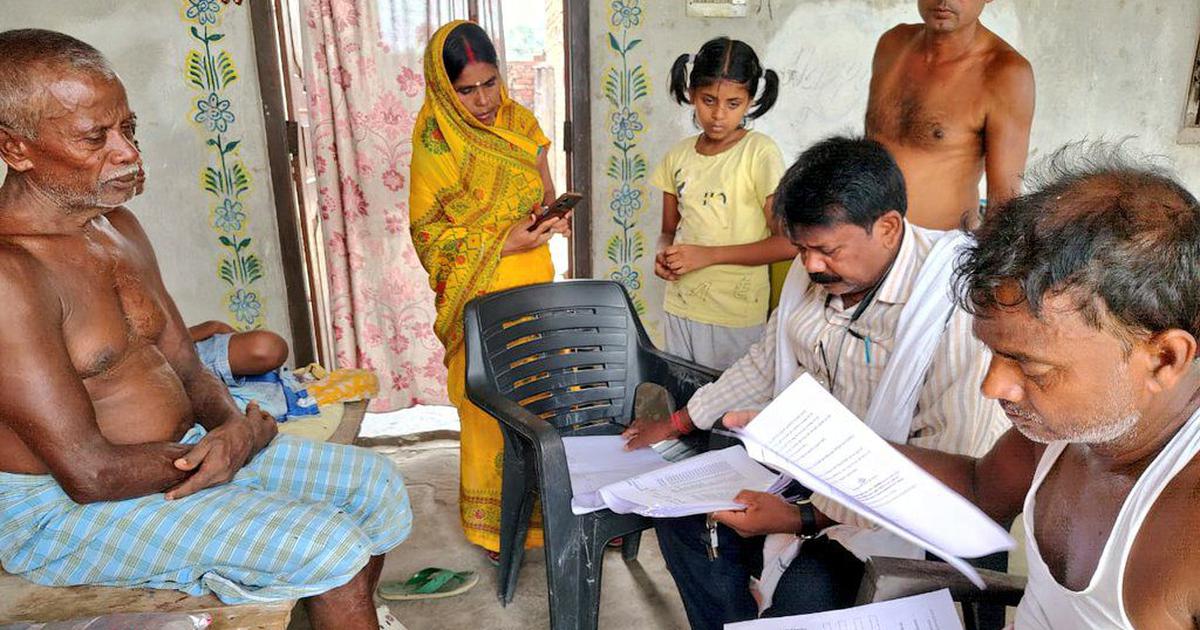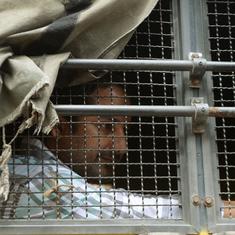Aadhaar, ration card can’t be included as proof for Bihar voter roll revision: EC to Supreme Court
A person’s citizenship will ‘not terminate’ if they are found ineligible for registration in the voter rolls, the poll panel said in its counter-affidavit.

Aadhaar cards, voter ID cards and ration cards cannot be included as standalone valid documents for the revision of electoral rolls in Bihar, the Election Commission told the Supreme Court on Monday.
In a counter-affidavit filed in the court, the poll panel also stated that a person’s citizenship will “not terminate” on being found ineligible for registration in the electoral rolls.
This came in response to the Supreme Court’s July 10 order that asked the Election Commission to consider Aadhaar cards, voter identity cards and ration cards as valid proof for the electoral roll revision exercise “in the interest of justice”.
The court was hearing a clutch of petitions challenging the Election Commission’s decision to carry out the special intensive revision of electoral rolls in Bihar ahead of the Assembly elections, which are expected to take place in October or November.
The petitioners had challenged the poll panel’s exclusion of the Aadhaar card and voter ID from the list of documents specified as proof of citizenship for those whose names were not included in the 2003 electoral roll.
The Election Commission filed its affidavit in response to the petitions on Monday.
On Aadhaar, voter ID
The poll panel said in its affidavit that Aadhaar does not “constitute proof of Indian citizenship”.
“However, this is not to say that Aadhaar cannot be used to supplement other documents to prove eligibility,” the Election Commission stated.
The poll panel reiterated that the list of 11 documents that could be submitted as proof of citizenship was “indicative and not exhaustive”. The enumeration forms include a voter’s Electoral Photo Identity Card number and have an optional Aadhaar column, noted the Election Commission.
It also told the court that there is a “widespread existence of fake ration cards”, which is why it has not been included in the list of the 11 documents. However, the electoral registration officer “is obligated to consider” all documents presented as proof of eligibility, including the ration card, the Election Commission added.
“Decision to accept or reject the documents is dependent on the satisfaction of the electoral registration officer…and such decisions will be taken on a case-to-case basis,” said the poll panel.
On including the voter ID card as a valid proof, it said the document is prepared on the basis of the electoral rolls. “Since the electoral rolls itself are being revised, the production of the Electoral Photo Identity Card will make the whole exercise futile,” according to the Election Commission.
The revision of the electoral rolls in Bihar was announced by the Election Commission on June 24.
As part of the exercise, persons whose names were not on the 2003 voter list will need to submit proof of eligibility to vote. This means that 2.9 crore out of the state’s 7.8 crore voters – or about 37% of the electors – will have to submit documentary evidence.
Voters born before July 1, 1987, must show proof of their date and place of birth, while those born between July 1, 1987, and December 2, 2004, must also submit documents establishing the date and place of birth of one of their parents. Those born after December 2, 2004, will need proof of date of birth for themselves and both parents.
If the officers are satisfied with the details provided, the voters will be re-enrolled to a new voter list by electoral registration officers. If not, they will be removed from the voter lists.
A draft roll will be published on August 1 and the final roll will be out on September 30.
On July 2, eleven INDIA bloc parties told the Election Commission that the special intensive revision of Bihar’s electoral rolls risked disenfranchising more than 2.5 crore voters, as they may not be able to produce the necessary documents.
Chief Election Commissioner Gyanesh Kumar on July 6 defended the exercise, claiming that the exercise had to be carried out as no one was satisfied with the current voter rolls.
‘ECI competent to ask for relevant documents’
The poll panel also stated on Monday that there was no violation of law or fundamental rights of any voter in the electoral roll revision process.
“The SIR [special intensive revision’ adds to the purity of elections by weeding out inelgible persons from electoral rolls,” said the Election Commission.
It added that the petitioners’ arguments that only the Union government was can determine “all aspects of citizenship, including its existence, is patently false, misconceived, erroneous and unsustainable”.
On July 10, the Supreme Court verbally observed that only the Ministry of Home Affairs, and not the Election Commission, can remove non-citizens from the electoral rolls.
Advocate Gopal Sankaranarayanan, representing the petitioners, had argued that the special intensive revision improperly shifts the burden of proof from the Election Commission to the voter.
Under the exercise, voters must prove their citizenship and eligibility, which raises constitutional concerns, Sankaranarayanan had told the court.









